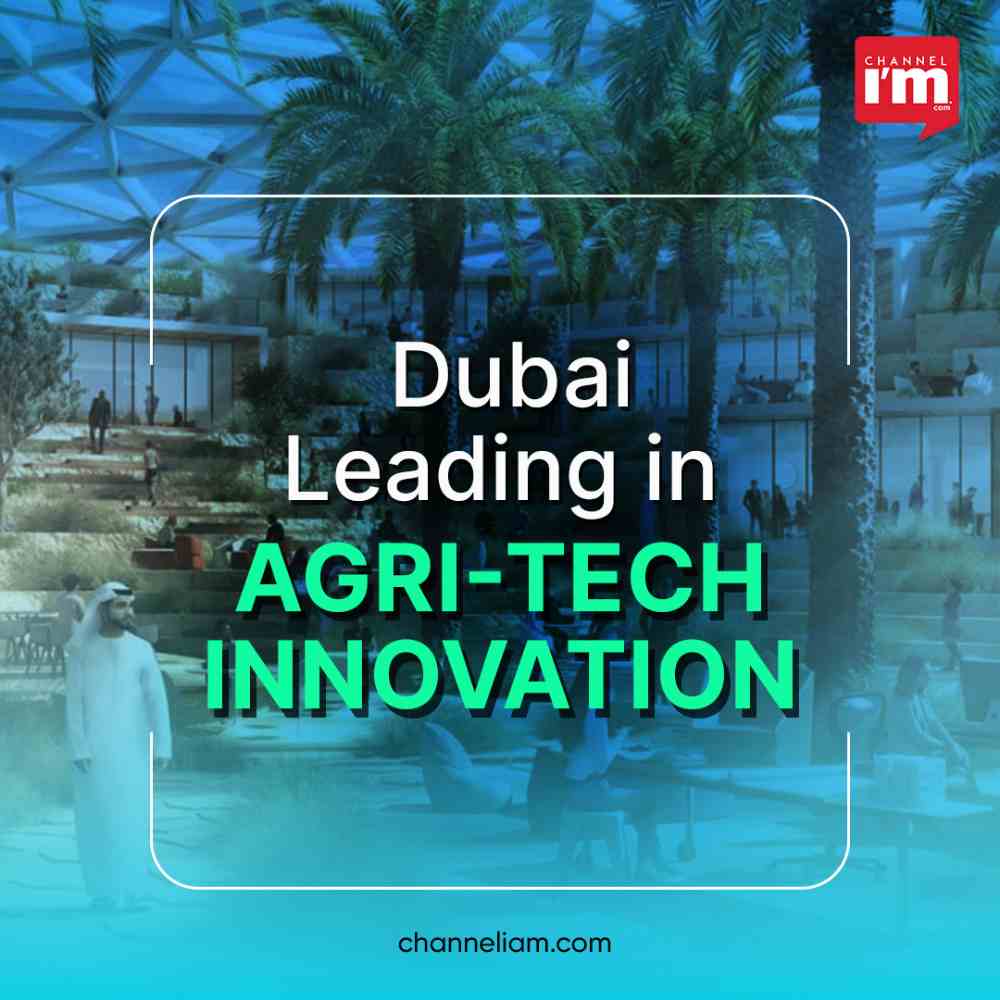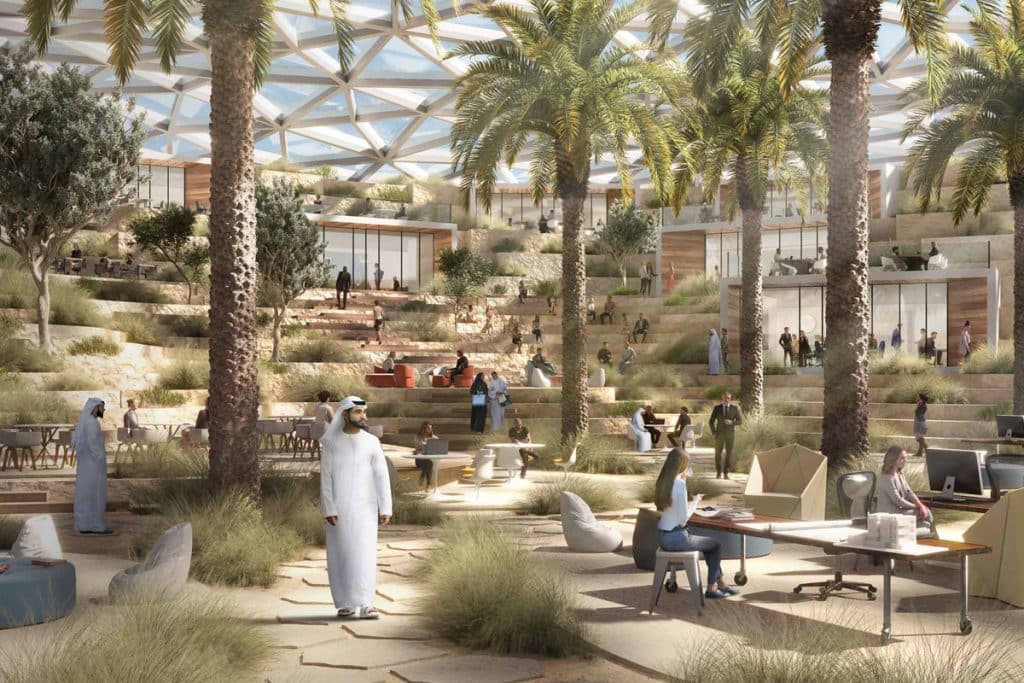Dubai, known for its stunning skyscrapers and luxurious lifestyle, is quietly transforming into a fertile ground for sustainable and climate-resilient technological advancements in the critical agricultural sector. The city’s pursuit of food security, sustainable solutions, and economic growth has positioned it as a hub for agri-tech innovation. In this article, we will evaluate Dubai’s journey in the realm of agri-tech through the lens of the “4Ns”: the Need, Nurturing Environment, New Policies, and New End Users.

The Need for Agri-tech Advancements in Dubai
Dubai, situated in the arid United Arab Emirates (UAE), faces significant challenges in traditional agriculture due to limited land, water scarcity, and harsh climate conditions. These constraints have forced the city to look for alternative solutions to ensure food security, especially in a world marked by the 3Cs: Covid, Conflict, and Climate. As a result, food security has become a national priority and a strategic challenge for Dubai.
Dubai’s economic growth and aspiration to be a hub of modern concepts, including sustainability and cutting-edge technologies, are converging to create a burgeoning interest in agri-tech. The confluence of politics, economics, and technological innovation is shaping Dubai’s tryst with agri-tech.
Nurturing Environment: Policies, Research, and Investments
Dubai’s proactive government plays a pivotal role in fostering an environment conducive to innovation. The journey of Merlin Aquaponic Farms is a testament to this nurturing environment. Beginning their experimentation at the Sharjah Research Technology and Innovation Park, they gained valuable insights and mentorship while being nurtured at the Mohammad Bin Rashid Incubation Centre in Dubai. Now, they are scaling up their operations in the Dubai Maritime City to meet the increasing demand for organic, chemical-free local produce.
The UAE’s National Food Security Strategy 2051, initiated in 2018, is a pioneering federal agenda that focuses on sustainable food production, supply chain enhancement, and the integration of modern technologies for local use. The ambitious goals include a 30-40% production boost within a decade and raising the share of locally produced food from 20% to 50% by 2051. Dubai, in particular, has implemented innovative tools like the Food Security Dashboard, utilizing AI to bolster food security measures.

Dubai’s ecosystem also encompasses incubators, research centers, and industrial zones. The Dubai Food Tech Valley, inaugurated in 2021, is envisioned as the world’s first agri-tech city and is expected to host R&D facilities, innovation hubs, logistics centers, and vertical farms. The Dubai Multi Commodities Centre (DMCC) supports agricultural trading and is beginning to nurture promising ag-tech startups.
While investments in the agri-tech sector are on the rise, further acceleration is needed, particularly from global investors. In 2021, the UAE secured 22 investment deals totaling $600 million, ranking 15th globally. Sovereign Wealth Funds have been at the forefront of funding initiatives, exemplified by ADIO’s Agritech incentives, Emirates’ investments in ventures like Bustanica, Mubadala’s ventures, and support from family offices.
New End Users and Market Potential
Dubai’s thriving hospitality and food industry offers a substantial market for locally grown, sustainable produce. With hundreds of hotels and thousands of restaurants, including fine dining establishments, the hotels, restaurants, and institutional (HRI) market in the UAE is valued at USD 12.3 billion, with a significant portion centered in Dubai. This aligns perfectly with Dubai’s identity as a hub for culinary experiences. Supply from agri-tech farms has the potential to meet the needs of local eateries, restaurants, and supermarkets, benefiting from freshness and community connections.
Prominent figures like Sunjeh Raja, the Head of the International Centre for Culinary Arts (ICCA), emphasize the ethical and profitable aspect of using fresh local produce. Aligning with Dubai’s sustainability goals, ICCA is also training the next generation of chefs and hospitality workers to prioritize locally sourced ingredients.
Global Interest in Dubai’s Agri-tech Landscape
Dubai’s agri-tech landscape has garnered the attention of other countries and global startups. India, in particular, with its strategic ties to the UAE, is a natural partner. Collaboration on expertise, funding, and expansion is becoming more common among Indian and UAE ag-tech enterprises. Startups like City Greens and global companies are exploring the potential in Dubai’s market, drawn by government policies, incubation centers, available capital, and networks.
Dubai’s reputation as a global technology hub is not limited to agri-tech alone. Startups from various domains, including food security, are experimenting with innovative solutions in the city.
A Promising Agri-tech Opportunity
While agri-tech in Dubai is still in its nascent stages, the visionary goals aligning with practical challenges hold immense promise. Focus areas like indoor farming, precision agriculture, and agri-input sub-sectors are gaining traction. However, to reach its full potential, the sector must address challenges such as scaling up, managing operational costs, regulatory clarity, and financing gaps.
As entrepreneurs, government bodies, and Emirate-level offices work towards the Food Security 2051 vision, Dubai’s favorable combination of need, supportive environment, progressive policies, and market demand positions it as a promising agri-tech opportunity on the global stage. Dubai’s transformation from a desert city to an agri-tech innovator is a testament to its commitment to sustainable solutions and food security for the future.
